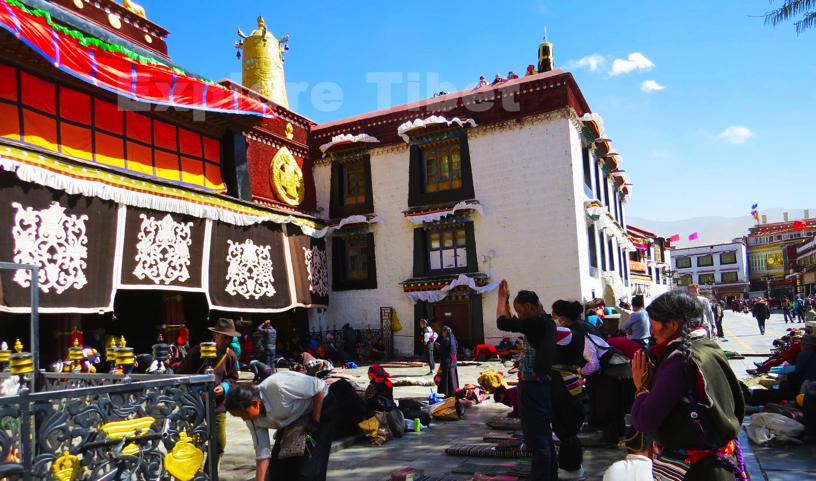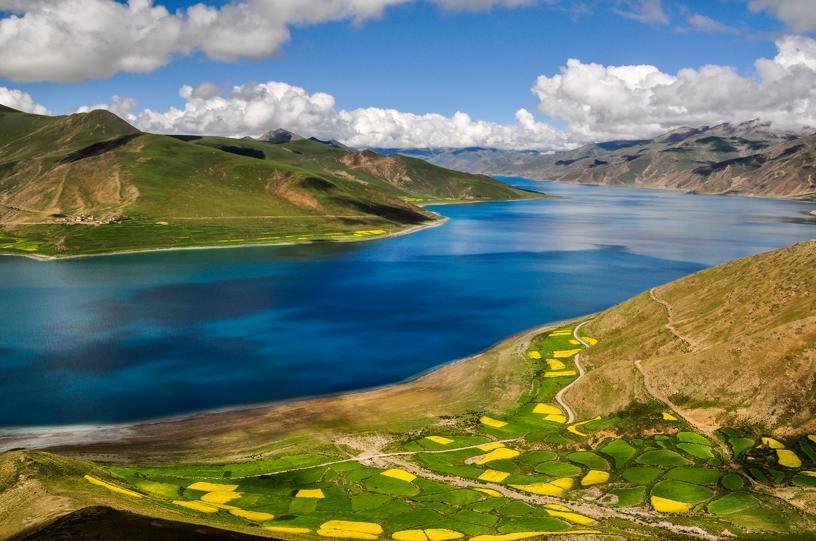
Tibetan Cultural Experiences Tour
One of the most awesome Tibet cultural experience tours on the Tibetan plateau, this unique tour of the Tibetan cultural centers in Lhasa and Shigatse Prefectures is the best way to learn more about the unique culture of the Tibetan people. A stunning journey of discovery, the tour takes you to some of the most important cultural sites in the Tibetan capital, from the ancient Jokhang Temple, the spiritual center of the Tibetan people, to the Potala Palace, one of Tibetan culture’s most inspired creations.
Tibetan culture is more than just the usual customs and achievements of the Tibetan people. Here, culture also includes Tibetan Buddhism, which is so closely interwoven into the fabric of Tibetan society, art, and social interactions and institutions that it can be hard to distinguish what aspects of the whole Tibetan culture come from where. Many of the major achievements of Tibet have come because of the unique Tibetan Buddhism that is prevalent across the region, while much of the religious doctrine and Buddhist rituals used in Tibet have their origins in the culture, not the original Theravada Buddhism.
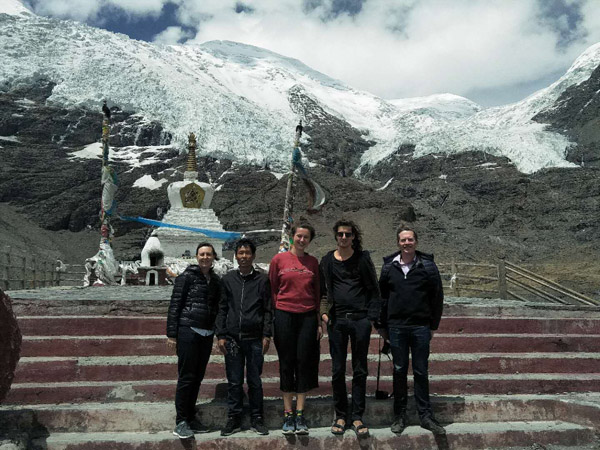
Table of Contents
Tour Itinerary
A tour that lasts six days, including the days when you arrive and depart, this journey of cultural enlightenment in Tibet is one of the best ways to learn more about the Tibetan people, their unique religious culture, and their traditional way of life.
The first three days of the tour are spent in Lhasa, the stunning Tibetan capital, known as the “City of Sunshine” because of the long hours of sun throughout most days and the high number of sunny days in the course of the year. After spending your arrival day resting and adjusting to the climate and the altitude, the next two days will be spent touring around the major highlights of this beating heart of Tibetan culture.
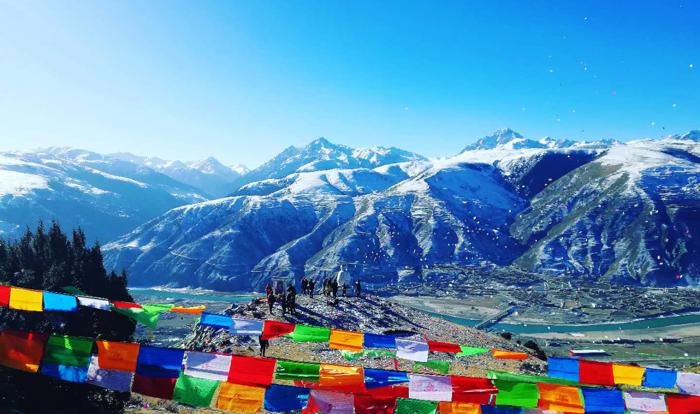
During the two days, you will get to spend time in some of the most iconic landmarks in Lhasa, including the red and white Potala Palace, on its high hill above the city; the sacred Jokhang Temple, the first temple in Lhasa and the home of one of the oldest statues of Buddha known to man; and the Gelugpa monasteries of Sera and Drepung, two of the most important university monasteries in Tibet. You will also get to spend some time in the famous Barkhor Street, the main shopping street in Lhasa, which doubles as the ritual kora route around the Jokhang Temple for the pilgrims that travel hundreds of miles to pray at the gates.
After departing the city, you will head first to the beautiful Lake Yamdrok on your way to Gyantse, and then on to Tibet’s second city, Shigatse. The route to Shigatse takes you along the northern shores of the lake, and on to the beauty of the pristine white Karola Glacier, before continuing on to Gyantse, home of the largest stupa in Tibet, and then on to Shigatse to visit one of the most unique monasteries in the entire region.
After your stay in Shigatse, you have two choices. You can either travel back to Lhasa by car for the last day of your tour, or you can take the unique plateau train from Shigatse to Lhasa, part of the highest railway in the world, which was only recently opened to improve transport between the cities. A great way to experience more of the Tibetan culture, trains are like moving social events, and you will be surprised at the number of people that will want to talk to you on the trains.
Tour Highlights
Almost all tours of the plateau include the section of the tour that takes you around the major attractions of the Tibetan capital of Lhasa. These tours usually include all five of the major sites within the city, though some do add other sites to see whilst there, if you have time. The main highlights of the Tibetan capital are:
Jokhang Temple – One of the oldest Buddhist temples in the region, the Jokhang was built in the 7th century by the Tibetan king, Songtsen Gampo. Surrounded by myths and legends, the temple houses the life-size gilded statue of Sakyamuni Buddha at the age of 12.
Barkhor Street – Nowhere on earth is like Barkhor Street, where you can pick up your souvenirs, some light snacks and refreshments, and some local handicrafts, all while making the ritual Buddhist pilgrimage around the kora route. You can even get your own hand-held prayer wheel for the journey.
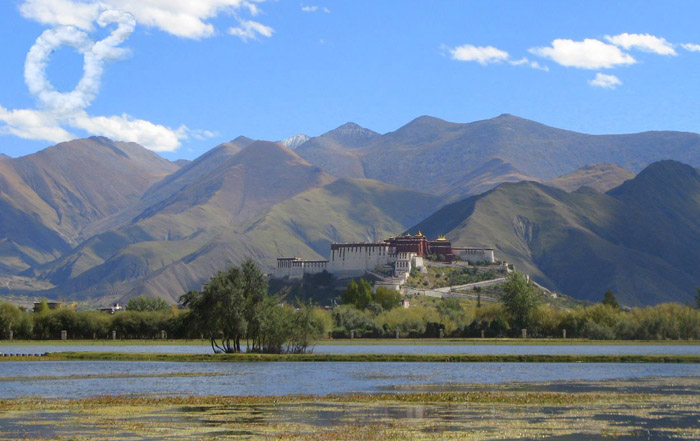
Potala Palace – The former seat of governance in Tibet for around a hundred years, the Potala Palace is a massive two-color palace that was built for the 5th Dalai Lama. After the seat of government was moved to Norbulingka in 1755, the palace became the winter palace for the Dalai Lama, and is now a famous museum and local heritage and culture site.
Sera Monastery – One of the major university monasteries of the Gelug School of Tibetan Buddhism, Sera Monastery is renowned for its monastic debates in the afternoons, which are open to the public. The debates are articulate and articulated, and can get very expressive, with lots of hand-clapping, foot-stamping, and loud exclamations.
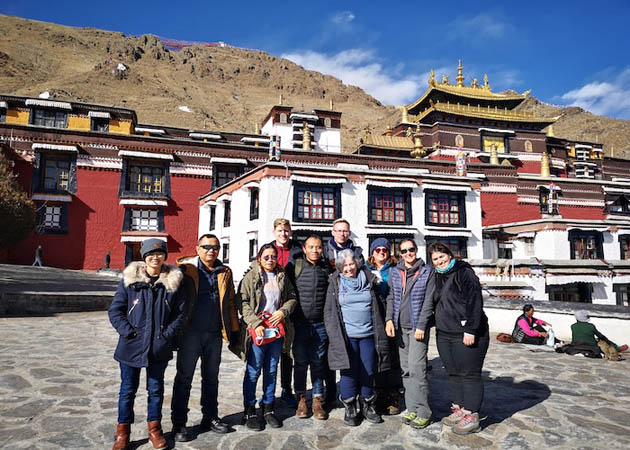
Drepung Monastery – Sister Monastery to Sera, Drepung Monastery is another of the great university monasteries of the Gelug School. Drepung is notable for being the largest monastery in Tibet, and the most important monastery in the Gelug School of Tibetan Buddhism.
As well as the major highlights of Lhasa, this amazing tour gives you plenty of insights into Tibetan culture with the visits to the attractions that lie outside the city. Many of these sites are important sites in either religion or culture, or sometimes both, and often have a major historical significance to Tibetans.
Yamdrok Lake
Yamdrok Lake is one of the Great Three Sacred Lakes of Tibet, and is renowned for its unusual shape. Many legends exist about the formation of the lake, the most popular being the casting of gold talons to the ground by a goddess who saw the lakes were drying up, and joined them all together to be the life-blood of the Tibetan plateau.
Kumbum Stupa
The only stupa of its kind in Tibet, the Kumbum Stupa in the Pelkor Chode Monastery in Gyantse stands 32 meters tall, has nine floors, and includes a total of 108 chapels. Built by a minor noble in what would become, for a time, the largest town in the Tibetan Empire, this amazing piece of work truly is one-of-a-kind.
Tashilhunpo Monastery
One of the main Six Big Monasteries of the Yellow Hat Sect in Tibet, also known as the Gelug School, Tashilhunpo Monastery was built in the 15th century by the first Dalai Lama. Located at the foot of Tara’s Mountain (Drolmari) in Shigatse, it has long been the seat of the Panchen Lama, the second highest incarnation in Tibetan Buddhism. Home to almost a thousand monks, the monastery is the home to the largest gilded statue in the word, the 86-foot-high Maitreya Buddha, also known as the Future Buddha.
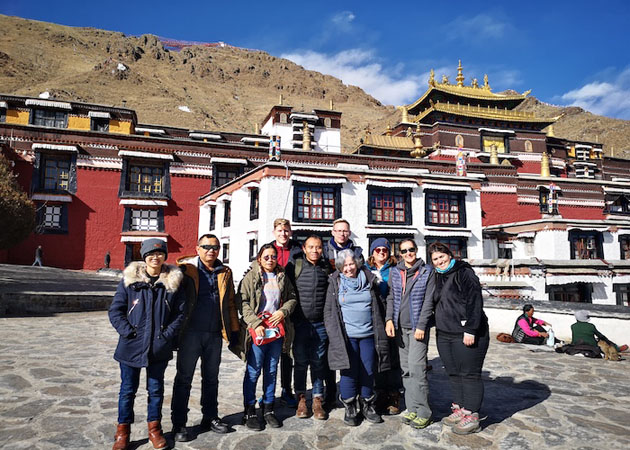
Inclusive Services
The great thing about taking a tour in Tibet is the fact that the cost that you pay for the tour actually includes almost everything that you will need to pay for, so you need a lot less in terms of spending money. This six-day tour of the cultural centers of central Tibet includes the entrance tickets to all of the major attractions (it does not cost anything to walk around Barkhor Street!), as well as bottled water, private transportation around the city, hotel accommodation for all three nights, and the cost of the guide and driver for the tour.
Recent Posts
Exploring the Beauty of Tibetan Handicraft
The Ultimate Guide to Tibet Tours, Travel, and Trekking Adventures
How to Explore Tibetan Culture
All Categories
- About Tibet
- book a Tibet tour
- Buddhism Practice
- Budget Tour
- China-Tibet Train
- Customized Tibet tour
- Historical Sites
- Hot Springs in Tibet
- News
- Photography in Tibet
- Tibet attraction
- Tibet Group Visa
- Tibet Motorcycle Tour
- Tibet Small Group Tours
- Tibet Tours and Tibetan Tour Guide
- Tibet Train
- Tibet Travel FAQs
- Tibet Travel Information
- Tibet Travel News
- Tibet Travel Permit Update
- Tibet Travel Prices Rises
- Tibet Trek
- Tibet Trekking Tour
- Tibet weather and climate
- Tibet Wildlife animals
- Tibet Winter Tour
- Tibetan Buddhism
- Tibetan Cultural Features
- Tibetan Culture and Poeple
- Tibetan Festivals
- What to see in Tibet

